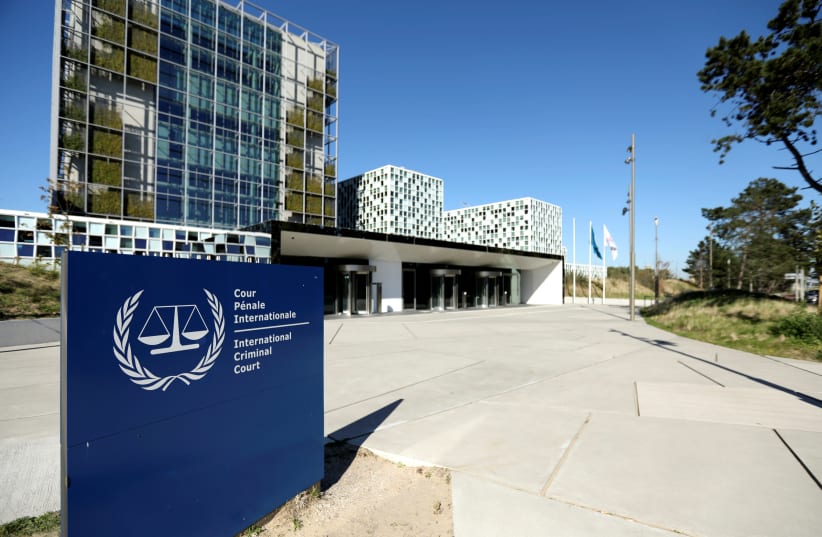Thus spoke US Secretary of State Mike Pompeo on November 19, when announcing the United States does not view Israeli settlements as illegal.
The International Criminal Court’s chief prosecutor, Fatou Bensouda, emphatically declared on Friday she does not agree with that sentiment when she recommended opening an investigation into alleged war crimes as a result of the settlements and Operation Protective Edge in Gaza in 2014.
Bensouda disregarded Israel’s arguments the court did not have jurisdiction in the case, since the Palestinian territories do not constitute a state, and wrote, “There are no substantial reasons to believe that an investigation would not serve the interests of justice.”
December 20 will likely go down as the day when the Palestinian Authority, which brought the case to the ICC five years ago, won its biggest victory, and also the day when the ICC – already a body whose legitimacy is questioned – will begin a decline into irrelevance.
The UN Human Rights Commission, which later morphed into the UN Human Rights Council, once held out great promise, but is now widely seen as a completely politicized body void of any moral relevance. One key reason: the way it was hijacked by the Palestinians to their cause, and into the campaign to delegitimize and demonize Israel.
The ICC in the Hague seems now headed in the same direction, even though Bensouda tried to present a sense of fair-play by saying the court would investigate possible war crimes committed by Hamas and “Palestinian armed groups.” That’s little more than a fig leaf – evidenced by the fact that the PA warmly applauded the prosecutor’s recommendation.
Up until now, Jerusalem – never enamored of the ICC or a signatory to the 1998 Rome Statute that brought it into existence – has refrained from attacking its legitimacy, just as the ICC has, until now, recognized the independence and efficacy of the Israeli judicial system.
For years, the Palestinians have used the ICC as cudgel over Israel, threatening to go the court as means of placing leverage on Israel to get concessions.
Sometimes, however, a gun with one bullet is more effective if loaded, but never fired. Because loaded, it can be used to threaten; but what happens if the gun is fired, and misses its mark?
There is no doubt the ICC prosecutor’s recommendation is very problematic for Israel and it will make Jerusalem squirm; There is no doubt if the process continues and Israel is convicted of war crimes, it will create a huge headache for Israel’s political and military leaders who are implicated.
But there is also no doubt that Israel is not just going to roll over and gently accept this. It will fight it and try to get the court not to continue the process. And in doing this, it will launch a variety of different campaigns, from waging a full-throttle public and diplomatic campaign against the legitimacy of the court and accusing it of just being the newest international organization to be hijacked by the Palestinians, to trying to enlist powerful friends and allies to its side.
And the most important ally in this battle will be the United States.
In November 2017, Bensouda asked judges of the ICC for authorization to investigate war crimes in Afghanistan, including those allegedly committed by Americans.
In March 2019, Pompeo declared the US would revoke visas of ICC employees involved in the investigation, and it indeed revoked Bensouda’s visa.
A month later, the ICC’s judges rejected Bensouda’s request for an investigation. The reason given by the three ICC pre-trial chamber judges: such an investigation “would not serve the interests of justice.”
Israel will surely now turn to the US – itself deeply concerned by the court’s overreach and threat to its sovereignty – in an effort to get the ICC pre-trial judges to make a similar determination regarding Israel.
Back in March, when Pompeo declared sanctions against ICC, he also said US visa restrictions may be used “to deter ICC efforts to purse allied personnel, including Israelis, without allies consent.”
On Friday he tweeted the US “firmly” opposes “this unjustified inquiry that unfairly targets Israel.” It is unlikely this US opposition will manifest itself only through a tweet.
The ICC prosecutor decided to start a fight on Friday. From responses by both Israeli and US leaders, it is clear that there is a strong intention to fight back – and that type of fight, though obviously not good for Israel, could also end up very damaging to the ICC itself.
